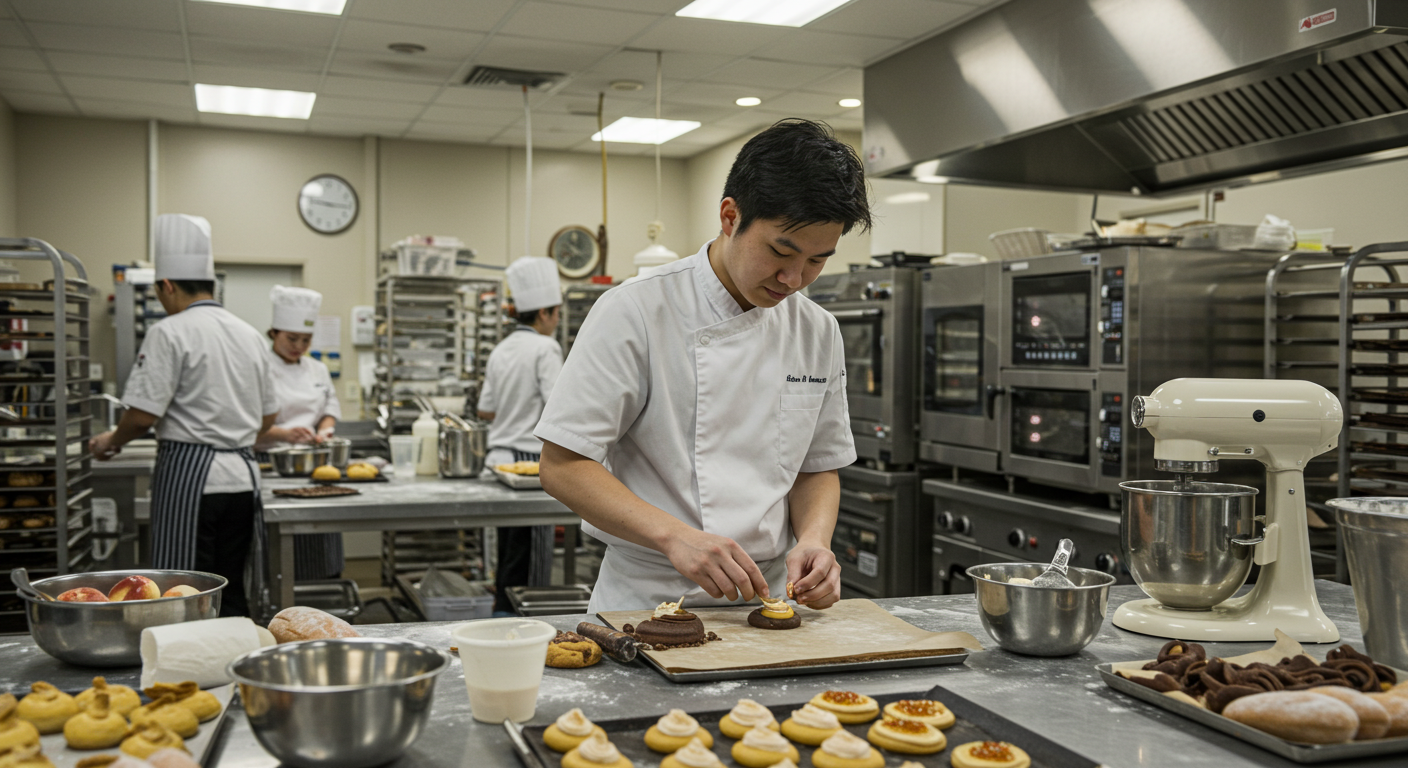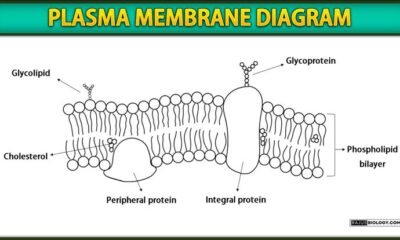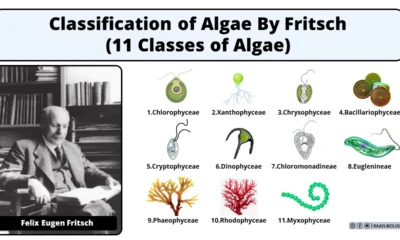Blog
Moving Ahead with Professional Baking Classes and Online Baking Classes

Modern pastry careers benefit from blended learning routes.Our Professional baking classes in Delhi offer controlled, hands-on practice with instructor oversight and production-level equipment. Online baking classes extend access to theory, technique demonstrations, and structured feedback with flexible timing. When these modes are combined with a disciplined practice journal and portfolio plan, learners progress faster and gain confidence for real kitchen demands. This approach also aligns with institutes that provide hands-on bakery and pastry training, structured modules, and placement assistance in Delhi NCR. Many students enroll in a culinary arts course to formalize their training.
What Professional Baking Classes Deliver
Supervised Technique Building
Students learn the feel of dough development, the look of properly emulsified batters, and the sound of a crust that is baked through. Instructors correct posture, handling, and sequence, leading to faster improvement through guided repetition that mirrors real kitchen coaching standards.
Production Realism
Batching, scaling, proofing windows, oven management, and finishing lines reflect service conditions, training students to plan and adjust schedules under typical bakery timelines used in professional environments.
Advanced Methods
Lamination demands precise temperature control and handling. Entremets require stable mousses and level assembly. Chocolate work builds control over temper curves and finishing shine. Sugar stages develop patience and attention, all of which are core components in advanced bakery modules and diplomas.
Equipment Confidence
Sheeters, deck ovens, combi ovens, blast chillers, and proofers become familiar, helping learners manage loading patterns, temperature stability, and cooling protocols on industry equipment found in quality training kitchens.
Where Online Baking Classes Excel
Theory Access
Ingredients are explained through function and interaction. Ratios and process science can be revisited repeatedly with recorded modules that support structured progression alongside hands-on sessions.
Flexible Practice
Learners can schedule kitchen time around work or study, repeat assignments, and compare outcomes across weeks, a format commonly supported by weekend or part-time offerings.
Structured Mentorship
Live doubt clearing and scheduled feedback keep students accountable. Well-designed baking classes in Delhi provide checklists and rubrics that guide improvement in tandem with practical modules from recognized academies.
Cost and Reach
Travel and lodging costs are reduced while enabling access to expert instructors and broader networks connected to established culinary and bakery academies.
Blended Learning Plan for Faster Progress
Pre-Learn Theory Online
Study ingredient functions, lamination steps, chocolate temper curves, and mousse structures, then enter practical classes ready to execute for better lab efficiency and outcomes.
Use Online Modules for Revision
After a lab on lamination or glaze work, rewatch targeted sections, record corrections, and repeat within a day to lock in learning, reinforcing hands-on gains.
Document Practice
Maintain a photo and video log for feedback, capturing temperatures, timings, and humidity each session to compare batches and stabilize quality over time.
Simulate Service
Set a window for plating or finishing and practice portion control, garnish logic, and clean presentation under time pressure to prepare for placement trials and internships.
Core Pastry Competencies to Master
Dough Systems
Straight doughs, preferments, sourdough basics, and enriched doughs with attention to fermentation curves and oven spring reflect a standard progression in bakery curricula.
Emulsions and Aeration
Stable batters, meringues, and mousses with controlled volume and structure are essential for consistency across production and display.
Chocolate and Sugar
Tempering, ganache ratios, bonbon assembly, and sugar stages require precise handling, storage, and shelf life awareness emphasized in professional pastry training.
Plated Desserts
Balance temperature, texture, and flavor through a plating plan, garnish set, and pass sequence that holds through service, supporting a la carte and banquet readiness.
Portfolio Building That Proves Readiness
Range of Items
Include breads, laminated pastry, cakes, entremets, chocolate, and tarts, plus two plated desserts with contrast and neat finish to match recruiter expectations and placement pathways.
Consistency Evidence
Show repeated batches with similar outcomes to signal reliability, a trait valued in internships and first roles.
Costing Sheets
Attach a few costed recipes with yield and wastage notes to demonstrate commercial awareness taught in structured programs.
Production Schedules
Include a one-day and a two-day plan for a small menu with timing blocks and cooling stages to display operational thinking used in training kitchens.
Common Pitfalls and How to Avoid Them
Rushing Fermentation
Underproofing reduces volume and texture, so track dough temperature and proofing indicators beyond time-based guesses as taught in artisan bread modules.
Overmixing Batters
Use visual cues for proper emulsion and stop once structure is set to prevent tunneling and collapse, a standard in cake science teaching.
Temper Drift in Chocolate
Monitor room and product temperature, work in small batches, and re-temper when indicators slip to maintain shine, snap, and stability.
Unplanned Plating
Write a plating sequence and practice it, keeping portions even with consistent garnish logic to meet a la carte service demands.
Career Outcomes with Blended Learning
Pastry commis and chef de partie roles in hotels and restaurants are common next steps following diplomas and certificates with internship support in Delhi NCR.
Production roles in patisseries and central kitchens value scheduling discipline, scaling, and neat finishing reinforced through structured modules.
Independent dessert brands and specialty cake businesses benefit from costing, menu planning, and portfolio proof developed during training.
Product development and culinary content roles reward clear documentation and process rigor shown in portfolios and live assessments.
Ninety-Day Action Schedule
Month One
Theory modules online, daily short practice sessions, and foundational items to build journal habits and accelerate recall before lab days.
Month Two
Advanced methods in professional baking classes with weekly online revision, plus start of portfolio photography standards for consistent presentation.
Month Three
Service simulations, portfolio completion, and trial interviews with a short demo of one signature item to prepare for recruiter interactions and placements.
Conclusion
Professional baking classes train the hands and eyes through supervised practice on industry equipment and production schedules, while online baking classes strengthen recall, theory depth, and planning for faster progression. Combined with a disciplined journal and portfolio focus, this blended route produces confident pastry professionals who can work to standards and timelines in modern kitchens and are prepared for internships and placements in Delhi NCR.

 Blog8 months ago
Blog8 months ago[PPT] Human Reproduction Class 12 Notes
- Blog8 months ago
Contribution of Indian Phycologists (4 Famous Algologist)
- Blog8 months ago
PG TRB Botany Study Material PDF Free Download

 Blog8 months ago
Blog8 months agoCell The Unit of Life Complete Notes | Class 11 & NEET Free Notes

 Blog8 months ago
Blog8 months ago[PPT] The living world Class 11 Notes

 Blog8 months ago
Blog8 months agoPlasma Membrane Structure and Functions | Free Biology Notes

 Blog8 months ago
Blog8 months agoJulus General Characteristics | Free Biology Notes

 Blog8 months ago
Blog8 months agoClassification of Algae By Fritsch (11 Classes of Algae)













